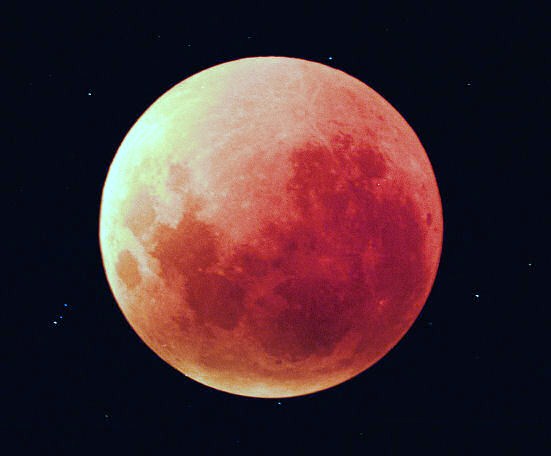
LIFE AS MYTH
![]()
JOURNAL
![]()
JOURNAL 2015
1001 stories
The gift of self
![]()
SUMMER 2015
Navigating dark waters
![]()
LIFEWORKS
![]()
ATLAS
![]()

SUMMER 2015
THE DARK SIDE OF THE SUN
Lunar eclipse. NASA.
The lunar eclipse occurs when the earth aligns exactly, or almost exactly, between the moon and the sun, causing the earth's shadow to fall across the surface of the moon. In the peak viewing areas this year, the eclipse rendered the moon blood red. This extraordinary and natural spectacle has inspired multiple mythological explanations. It is even one of the visionary omens in the prophetic texts of Revelation: And I behold when he had opened the sixth seal, and lo, there was a great earthquake; and the Sun became black as sackcloth of hair, and the Moon became as blood. Revelation 6:12 KJV
Various traditions credit lunar and solar eclipses with affecting human and natural events. Tibetan Buddhists say that during a lunar eclipse, our actions, whether good or bad, are multiplied one thousand fold. Astrologers say the occurrence of an eclipse can trigger wars, political events and natural phenomenon (e.g., earthquakes).
In 1503 Columbus' ships ran aground in Jamaica. During the year that Columbus and his crew waited for rescue, the natives took care of them. Eventually, however, the islanders tired of feeding them. Columbus had an almanac and knew of an upcoming lunar eclipse. Just before the eclipse, he told them that his god was angry and would show them that evening. When the moon was eclipsed that night, the islanders promised to continue providing for them, if Columbus' god would restore the moon.
In Chinese mythology, lunar eclipses occur because the Dragon, a masculine solar energy, is attempting to eat the moon. To counteract this effect, it was traditional in ancient China to make loud noises (e.g., bang drums) to frighten the Dragon away. As recently as the nineteenth century, the Chinese navy fired its cannons during a lunar eclipse because of this belief.

